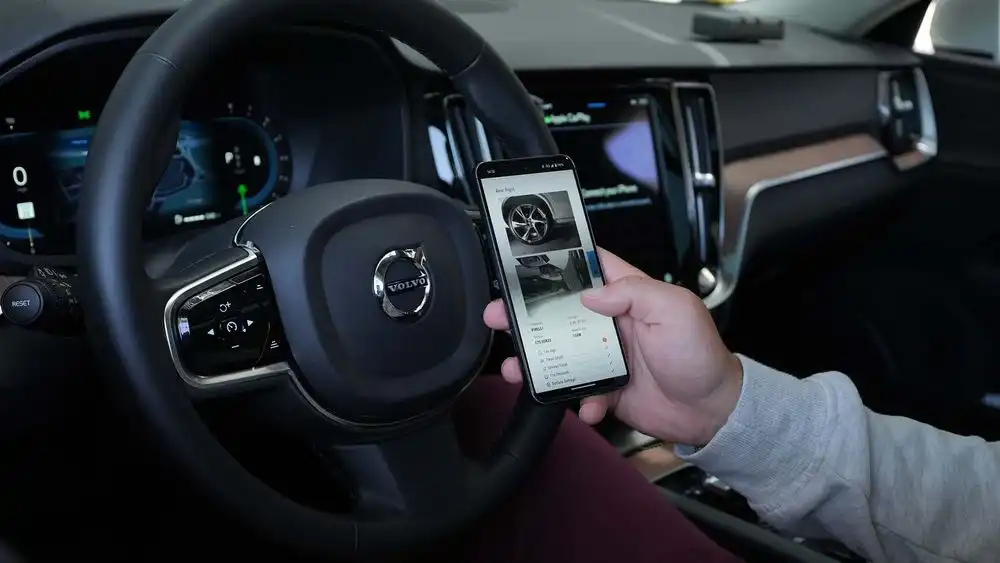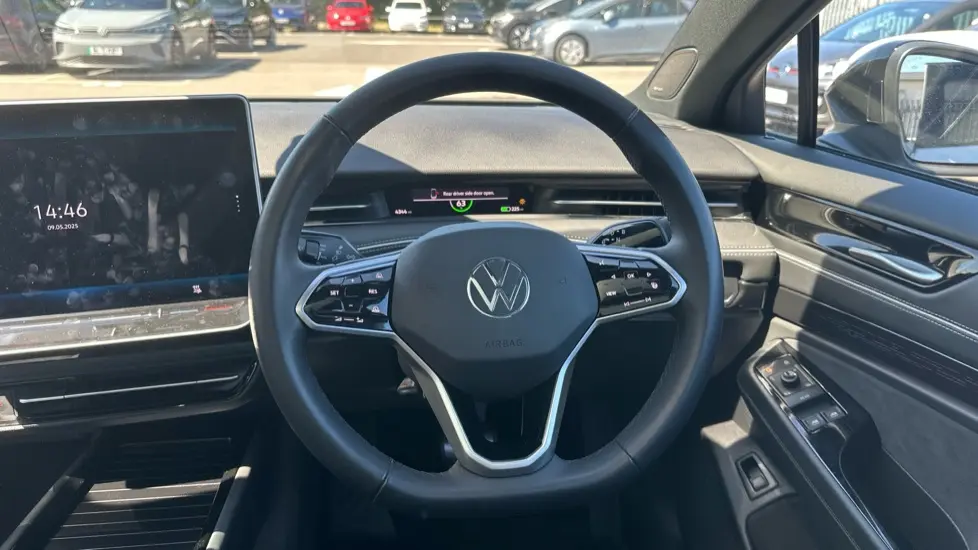Artificial intelligence (AI) is transforming the way we live, work, and interact with technology. In the automotive industry, AI is taking on an increasingly significant role in designing smarter, safer, and more efficient vehicles. The future of car design is not only about creating stylish vehicles with advanced features—it’s about integrating AI-driven technologies that improve every aspect of the driving experience, from manufacturing processes to vehicle performance and personalization.
In this blog, we’ll explore the ways artificial intelligence is shaping the future of car design, from enhancing autonomous driving capabilities to revolutionizing vehicle safety, efficiency, and user experience.
1. AI-Powered Autonomous Driving Systems
One of the most exciting applications of AI in car design is the development of autonomous vehicles (AVs). AI is the backbone of self-driving car technology, enabling vehicles to navigate roads, make decisions, and respond to changing conditions without human intervention.
AI in Autonomous Vehicles:
-
Machine Learning (ML): AI systems use machine learning algorithms to analyze large datasets from cameras, sensors, and radar to “learn” how to navigate safely. These algorithms continuously improve by recognizing patterns in the environment and adapting to different driving situations.
-
Real-Time Decision Making: AI allows autonomous vehicles to make decisions in real-time, such as determining when to slow down, stop, or change lanes. By processing data from the car’s surroundings, AI ensures that the vehicle can respond to obstacles and unpredictable scenarios, such as pedestrians or traffic.
-
Path Planning and Navigation: AI helps autonomous cars plan the most efficient route while accounting for real-time traffic data, road conditions, and traffic laws, optimizing travel time and safety.
As AI continues to evolve, we’re moving closer to fully autonomous vehicles that could eventually take over the driving task entirely, providing a safer, more efficient way to get from point A to point B.
2. AI-Driven Design and Customization
In addition to improving vehicle functionality, AI is playing a crucial role in designing the interiors and aesthetics of modern cars. AI-powered design tools are helping automakers create customized, personalized experiences for drivers, improving comfort and usability.
Key Aspects of AI in Car Design:
-
Personalized Driving Experience: AI can tailor the vehicle’s settings to the driver’s preferences. Using data from the driver’s previous trips, AI can adjust the seat position, climate controls, and infotainment settings without the driver needing to make any changes manually.
-
Predictive Design Tools: AI is revolutionizing the design process by offering predictive design tools that allow automakers to experiment with different car designs virtually. These tools use data-driven insights to forecast how certain design elements will impact a vehicle’s performance, safety, and user experience.
-
Interior Customization: AI-enabled interfaces can recognize the driver’s habits and suggest customizations, such as setting preferred routes, favorite music playlists, or adjusting comfort features, creating a seamless, personalized driving experience.
3. AI in Vehicle Safety Systems
AI is dramatically improving vehicle safety, offering advanced safety features that go beyond traditional crash prevention methods. These AI-driven safety technologies not only help protect passengers in the event of an accident but also work to prevent accidents from happening in the first place.
Key AI-Enhanced Safety Features:
-
Automatic Emergency Braking (AEB): AI systems can analyze traffic patterns and detect potential collisions in real-time, applying the brakes automatically if the driver doesn’t respond in time. This reduces the risk of rear-end collisions and can save lives in emergency situations.
-
Collision Detection and Avoidance: AI-powered sensors and cameras can identify hazards such as pedestrians, cyclists, or vehicles in the car’s path. The AI system alerts the driver or takes action, such as steering or braking, to avoid the collision.
-
Driver Monitoring: AI can also monitor the driver’s behavior, using facial recognition and sensors to detect signs of drowsiness or distraction. If the system detects that the driver is not paying attention or is becoming fatigued, it can issue alerts or even intervene by taking control of the vehicle.
These advancements significantly enhance car safety, making modern vehicles more equipped to prevent accidents and protect drivers and passengers.
4. AI and Manufacturing Efficiency
AI is also revolutionizing the manufacturing process of modern cars. By integrating AI into the design and production stages, automakers are able to streamline operations, improve efficiency, and ensure high-quality vehicles are produced faster.
How AI is Transforming Manufacturing:
-
Predictive Maintenance: AI-powered systems can predict when machines and equipment in the manufacturing process are likely to break down, allowing manufacturers to address potential issues before they cause delays or defects. This predictive maintenance helps reduce downtime and maintain continuous production.
-
Automated Quality Control: AI-powered robots and cameras are used in automated quality control systems. These systems can identify defects in car parts, such as imperfections in the bodywork or misalignments in components, ensuring that only high-quality vehicles leave the factory.
-
Optimizing Supply Chains: AI analyzes vast amounts of data to optimize supply chain management, ensuring that the right parts are available at the right time. By reducing delays and eliminating waste, AI helps keep production on schedule and within budget.
With AI-driven manufacturing, automakers can produce cars more efficiently while maintaining the highest standards of quality and performance.
5. AI and Fuel Efficiency
AI plays a significant role in improving fuel efficiency and reducing the environmental impact of cars. By integrating AI-powered systems into modern vehicles, automakers can make vehicles smarter in how they manage energy use, ultimately helping drivers save money and reduce their carbon footprint.
Key AI Features for Fuel Efficiency:
-
Intelligent Power Management: AI can optimize how the car’s energy is used by switching between power modes (such as electric or gas in hybrid vehicles) based on driving conditions. For instance, AI can reduce fuel consumption in stop-and-go traffic by automatically switching to electric mode in a hybrid vehicle.
-
Traffic Flow Prediction: AI systems can analyze real-time traffic data and adjust the vehicle’s driving style to minimize fuel consumption. For example, AI can suggest routes that avoid traffic congestion or adjust speed to improve fuel efficiency during long drives.
-
Eco-Driving Assistance: Some AI systems provide real-time feedback to drivers on how to drive more efficiently, suggesting when to accelerate or brake to optimize fuel consumption.
These technologies not only improve fuel efficiency but also contribute to reducing the overall environmental impact of cars.
6. The Future of AI in Car Design
The role of AI in car design is only going to expand as technology continues to evolve. In the future, we can expect even more advanced AI capabilities, including fully autonomous vehicles, smart road systems that communicate with AI-powered cars, and highly personalized driving experiences that adapt to the driver’s habits and preferences.
What’s Next?
-
Full Autonomy: As AI continues to advance, cars will likely become fully autonomous, offering a driving experience where the car does everything from steering to navigation without human input.
-
Enhanced Vehicle-to-Vehicle Communication: In the future, AI-enabled cars may communicate with each other to share real-time traffic data, preventing accidents and optimizing traffic flow.
-
AI-Driven Sustainable Vehicles: AI will continue to play a key role in making cars more eco-friendly, improving efficiency, and integrating sustainable materials into vehicle design.
Conclusion
Artificial intelligence is revolutionizing the automotive industry, bringing unprecedented innovation to every aspect of car design. From autonomous driving and enhanced safety systems to smarter manufacturing processes and better fuel efficiency, AI is transforming how cars are designed, built, and used. As the technology continues to evolve, the future of car design promises to be even more advanced, efficient, and connected.
Whether it’s making our vehicles safer, more efficient, or more personalized, AI is undeniably driving the future of transportation. As we move toward fully autonomous, environmentally conscious, and highly connected cars, AI will be at the heart of this transformation, shaping the way we experience driving for years to come.






